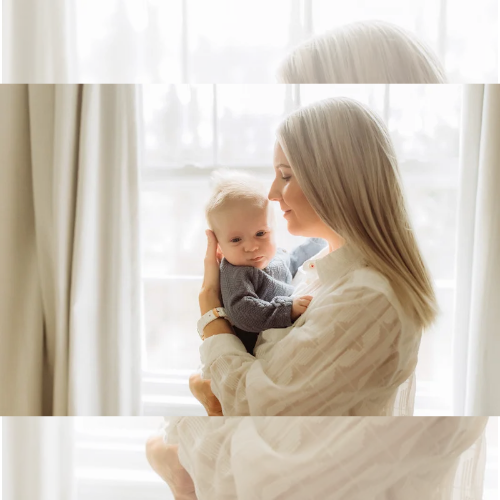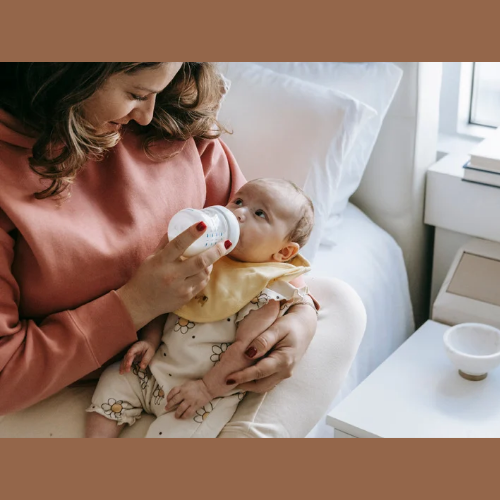Table of Contents
As a new parent, it’s natural to observe every movement and sound your newborn makes. Have you ever watched your peaceful baby instantly start hiccupping for no reason? It’s charming — but also a bit worrying for new parents. The good news? Hiccups are a totally normal part of a newborn’s life.
In this post, we’ll explain why babies get hiccups, when to be concerned (very rarely!), and simple tips to help soothe your baby.
What are newborn hiccups?
Hiccups in neonates are regular, involuntary spasms of the diaphragm, the muscle that separates the chest & abdomen. These contractions force the vocal chords to immediately close, resulting in the distinctive “hic” sound. Hiccups are quite frequent in babies & can begin in the womb around the second or third trimester.

Unlike adults, neonates’ hiccups are usually neither irritating or uncomfortable. In reality, they can shows a healthy, developing diaphragm and respiratory system.
Why do newborns get hiccups?
Hiccups in newborns happen due to involuntary contractions of the diaphragm — comparatively adults hiccup! But in babies, the diaphragm is more sensitive and readily triggered.
Common causes:
Swallowing air while feeding
Overfeeding
Abrupt temperature change
Laughter or Excitement (yes, even in babies!)
Are Hiccups Dangerous for My Baby?
Not at all. Most newborn hiccups are harmless & go away on their own. In fact, some babies even hiccup in the womb — it is part of normal development!
However, if your little one hiccups after every feeding or appears in discomfort, it might be worth mentioning to your pediatrician.
How to Treat Newborn Hiccups
While hiccups normally go away on their own, there are strategies to assist decrease their frequency or stop them once they start. Here is what you can do:
1. Pause during feeding
If your baby gets hiccups while feeding, pause and burp. This can assist release trapped air, which could be causing the hiccups.

Only restart feeding once the hiccups have subsided.
2. Adjust Feeding Techniques
If you are nursing, make sure the infant is properly secure.To avoid bottle-fed babies from gulping air, use a slow-flow nipple.
Feed your baby upright to improve digestion and limit air intake.
3. Burp your baby constantly
Burping your baby repeatedly during and after feedings can help avoid hiccups by lowering the amount of air in his stomach.
4. Offer a pacifier
Sucking on a pacifier can help relax the diaphragm & relieve hiccups.
5. Keep Your Baby Calm
Avoid overstimulating your baby right after eating. Gentle rocking or keeping your infant vertical can assist.
6. Wait it out
If your infant’s hiccups do not upset him, let them pass on their own. Most episodes barely last a few minutes.
Tips to Prevent or Diminish Hiccups
Here are some natural remedies:
1. Burp Your Baby Often
Burp your little one during and after feedings to release trapped air — a common hiccup trigger.
2. Hold Upright Post-Feeding
Keep your baby upright for 20–30 minutes after a feed. This helps the milk settle and decrease chances of hiccups or spit-up.
3. Use a Proper Feeding Position
Ensure your baby’s head is slightly elevated & latch is proper (if breastfeeding). Improper positions lead to air swallowing.
4. Gripe Water (Use with Care)
Some parents use gripe water, a natural remedy, to soothe tummy troubles & hiccups — but always check with your pediatrician first.
What NOT to Do:
Don’t scare or startle your infant (old myths — not helpful!)
Don’t give anything solid sach as lemon or honey to babies under 6 months
Avoid persistent feeding interruptions unless necessary
When to See the Doctor
Call your pediatrician if:
Hiccups last more than an hour frequently
Your baby indicates signs of reflux or discomfort
Feeding or sleep is getting reduce often
FAQs About Newborn Hiccups
Q: Can hiccups wake my little one up?
A: Rarely. Most babies sleep through hiccups, & it doesn’t cause them pain.
Q: Should I stop feeding when hiccups begin?
A: Only if your baby looks uncomfortable. Otherwise, continue feeding feebly.
Q: Are hiccup a sign of reflux?
A: Sometimes. If followed by spit-up, arching back, or crying, speak to a doctor.
Final thoughts
Newborn hiccups are a natural & common phenomenon, generally indicating a healthy & developing infant. While they may appear alarming at first, most hiccup bouts resolve on their own & do not bother your baby. Understanding the reasons & following easy solutions will help you manage & prevent hiccups successfully.
Newborn hiccups might look strange, but they are a usual part of growing up. With a few simple tricks — like burping, proper feeding posture, & lots of cuddles — you can help ease your infant’s little tummy spasms with love.
